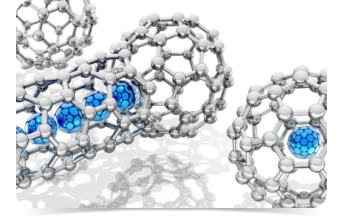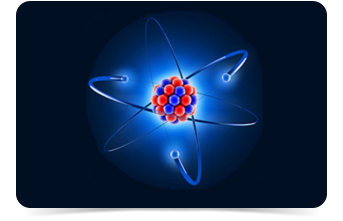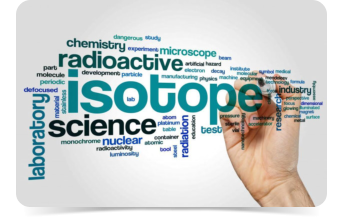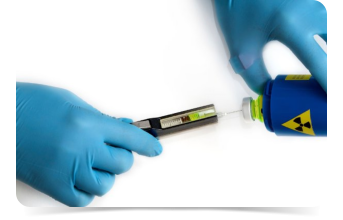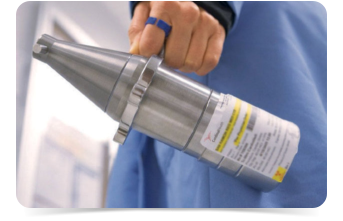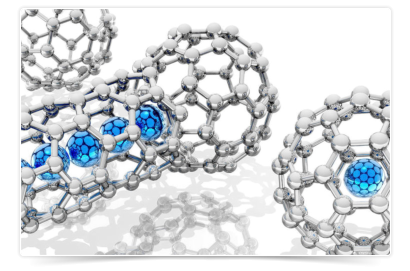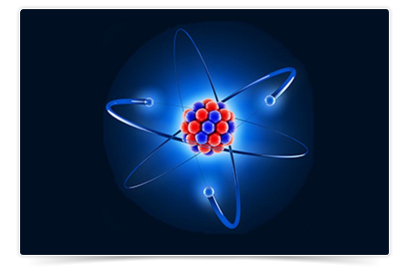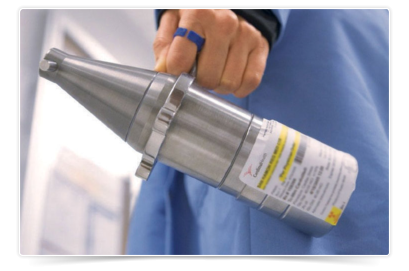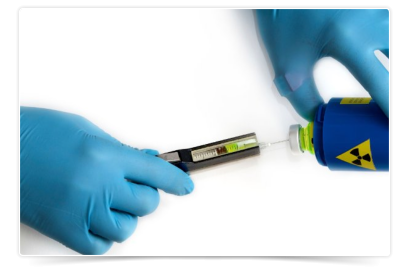Get in touch
Contact PDIU
Book a Visit
copyright © 2021 Pro Deo International University

Security
Privacy Statement
Reporting Security Issues
Masters in Radiopharmaceutics & PET Radiochemistry
The
Radiopharmaceutics
course,
will
equip
you
with
the
skills
to
work
as
a
radiopharmaceutical
scientist
in
a
PET
radiochemistry
centre
(cyclotron
unit)
or
in
the
field
of
conventional
radiopharmacy,
providing
diagnostic
and
therapeutic
radiopharmaceuticals
to
nuclear
medicine
centres and specialised commercial centres
Structure
Courses
are
divided
into
modules.
You
will
normally
take
modules
totalling 180 credits.
Aims
The
primary
aim
of
this
course
is
to
develop
students'
critical
skills
within
the
local
and
global
healthcare
technology
environment.
The
course
will
develop
students’
transferable
skills
for
critical
discussion,
written
review,
presentation
skills
and
creative
and
reflective
communication.
Learning Outcomes
Students should be able to demonstrate:
•
Ability
to
critically
appraise
published
literature
on
healthcare
technology and related findings
•
Ability
to
appraise
the
latest
advances
in
scientific
scholarship
and
the needs of the community in the area of healthcare technology
•
Ability
to
present
the
above
appraisals
effectively,
in
the
form
of
oral
presentations, critical discussion and written review
•
Ability
to
review
published
work
on
imaging
research
and
present
findings
in
written
report
and
oral
presentation
to
multiple
audiences
•
An awareness of the global and local healthcare environment.
Course Description
This
course
will
provide
translational
and
transferable
skills
by
way
of
core
lecture
material
and
an
extensive
series
of
guest-led
assessed
journal
club
sessions.
The
core
lecture
material
will
comprise
broad
information on key concepts in healthcare technology including:
•
Research Design
•
Creative media
•
Scientific Publishing and Peer Review
•
Scientific Funding
•
Healthcare Economics
•
Healthcare Challenges
•
Research Ethics
•
Sustainability, equality and diversity
The
assessed
critical
paper
review
will
comprise
multiple
sessions
designed
to
encourage
student
participation
in
discussion
and
raise
awareness of key literature in the healthcare technology domain.
•
Presentation
Skills:
Each
student
will
present
three
times
during
the
rotation,
once
as
lead
presented
and
once
each
presenting
the
contributions and limitations of a paper.
•
Class
Contribution:
Students
will
be
expected
to
contribute
to
the
class
throughout
the
year
by
raising
questions,
contributing
to
the
discussion
and
voicing
opinions.
Attendance
will
form
a
component
of class contribution.
Individual
Written
Contribution:
Students
will
be
asked
to
submit
several
written
pieces
of
work
including:
written
reviews
of
one
of
the
papers
discussed
from
the
first
and
second
half
of
the
paper
rotation.
Expert
summaries
of
lecture
material,
creative
writing
outputs
making
use of interview, graphical and other electronic formats.
Website
Reporting Website issues

Get in touch
Contact PDIU
Book a Visit
Security
Privacy Statement
Reporting Security Issues
Website
Reporting Website issues

Masters
in
Radiopharmaceutics
&
PET
Radiochemistry
The
Radiopharmaceutics
course,
will
equip
you
with
the
skills
to
work
as
a
radiopharmaceutical
scientist
in
a
PET
radiochemistry
centre
(cyclotron
unit)
or
in
the
field
of
conventional
radiopharmacy,
providing
diagnostic
and
therapeutic
radiopharmaceuticals
to
nuclear
medicine centres and specialised commercial centres
Structure
Courses
are
divided
into
modules.
You
will
normally
take modules totalling 180 credits.
Aims
The
primary
aim
of
this
course
is
to
develop
students'
critical
skills
within
the
local
and
global
healthcare
technology
environment.
The
course
will
develop
students’
transferable
skills
for
critical
discussion,
written
review,
presentation
skills
and
creative
and
reflective communication.
Learning Outcomes
Students should be able to demonstrate:
•
Ability
to
critically
appraise
published
literature
on
healthcare technology and related findings
•
Ability
to
appraise
the
latest
advances
in
scientific
scholarship
and
the
needs
of
the
community
in
the
area of healthcare technology
•
Ability
to
present
the
above
appraisals
effectively,
in
the
form
of
oral
presentations,
critical
discussion
and written review
•
Ability
to
review
published
work
on
imaging
research
and
present
findings
in
written
report
and
oral
presentation to multiple audiences
•
An
awareness
of
the
global
and
local
healthcare
environment.
Course Description
This
course
will
provide
translational
and
transferable
skills
by
way
of
core
lecture
material
and
an
extensive
series
of
guest-led
assessed
journal
club
sessions.
The
core
lecture
material
will
comprise
broad
information
on key concepts in healthcare technology including:
•
Research Design
•
Creative media
•
Scientific Publishing and Peer Review
•
Scientific Funding
•
Healthcare Economics
•
Healthcare Challenges
•
Research Ethics
•
Sustainability, equality and diversity
The
assessed
critical
paper
review
will
comprise
multiple
sessions
designed
to
encourage
student
participation
in
discussion
and
raise
awareness
of
key
literature
in
the
healthcare technology domain.
•
Presentation
Skills:
Each
student
will
present
three
times
during
the
rotation,
once
as
lead
presented
and
once
each
presenting
the
contributions
and
limitations of a paper.
•
Class
Contribution:
Students
will
be
expected
to
contribute
to
the
class
throughout
the
year
by
raising
questions,
contributing
to
the
discussion
and
voicing
opinions.
Attendance
will
form
a
component
of class contribution.
Individual
Written
Contribution:
Students
will
be
asked
to
submit
several
written
pieces
of
work
including:
written
reviews
of
one
of
the
papers
discussed
from
the
first
and
second
half
of
the
paper
rotation.
Expert
summaries
of
lecture
material,
creative
writing
outputs
making
use
of
interview,
graphical
and
other
electronic
formats.


- Department of Archaeology
- Faculty of Arts
- Caring Profession
- Development
- Engineering
- General Certification Courses
- ICT
- Hospitality and Tourism Studies
- Languages
- Management and Business College
- Faculty of Medicine
- Institute of Medicine and Surgery
- Institute of Medical Emergency Education
- Diploma for EMT - Paramedics
- Diploma in History of Medicine
- Masters in Emergency Medicine Management
- Masters in Healthcare Economics and Financial Management
- Masters in Healthcare Management
- Masters in History of Medicine
- Masters in Psychiatry
- Masters in Radiopharmaceutics
- Masters in Tissue Engineering and Regenerative Medicine
- Faculty of Theology and Philosophy
- Veterinary Sciences

scientia potentia est
Pro Deo
International University

Pro Deo International
scientia potentia est







